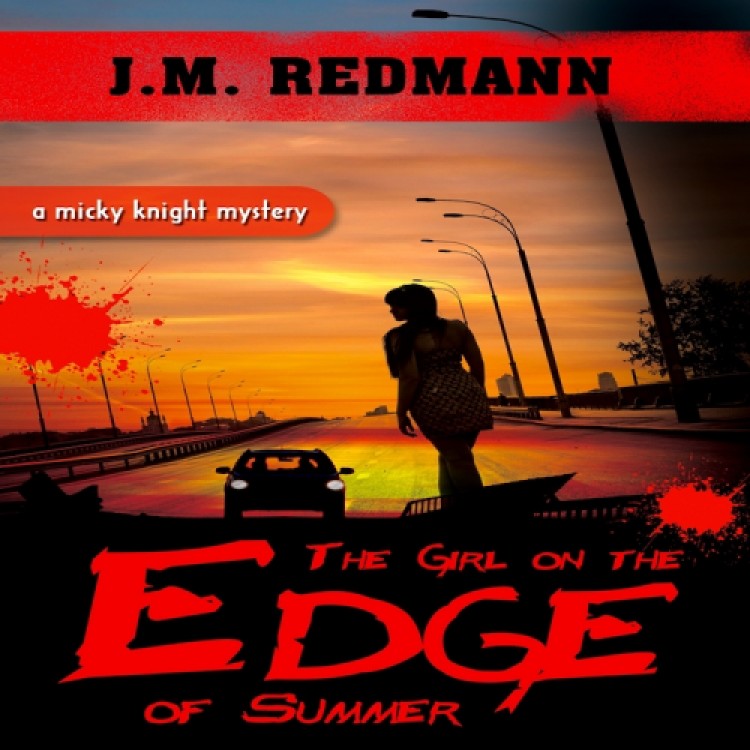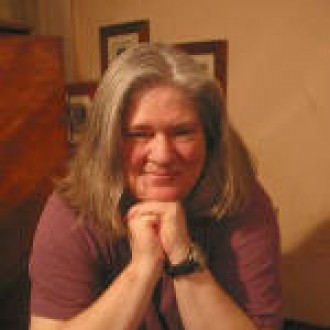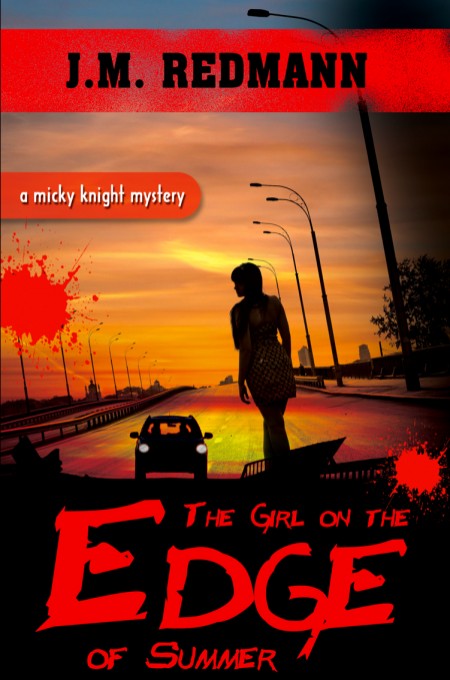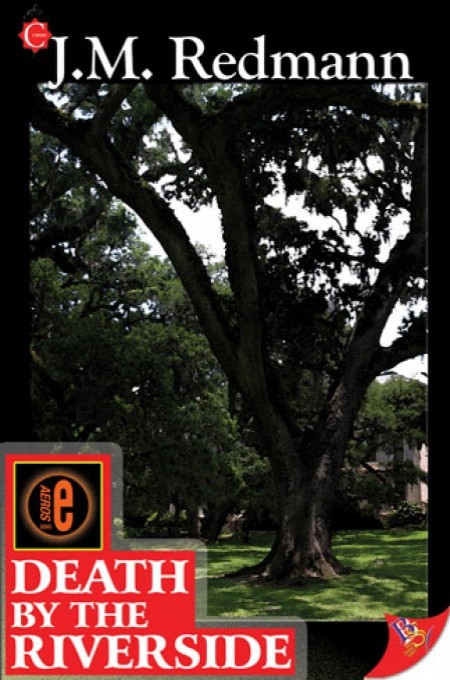J.M. Redmann blogs:
“Feminism is the radical notion that women are human, too.”
My ninth Micky Knight mystery, The Girl on the Edge of Summer, has recently been released. Bold Strokes has the other eight, in case you want to catch up. J Micky is a hard-boiled PI in New Orleans. I wrote the first book, Death by the Riverside, because I wanted to read a book about a lesbian PI and it seemed like the only way to do that was to write one myself. The streets can be mean and the ending not always happy, but my journey as a writer is to explore how flawed, messy people can still search for justice.
With the book just out, I’ve been doing a few bookish events lately and stumbled over a few things that have caused me to ruminate of progress—or lack thereof.
As much as we’ve made progress, there are still reminders that we have a long way to go. Yes, there are multiple issues affecting many people, but recently I’ve had a few run-ins with how far we as LGBTQ writers still have to go.
Not long ago I was moderating a panel on mysteries at a literary festival. It was a general audience, so I was the only queer person on the panel. (Nothing wrong with that, some of my best friends are straight—yes, that should be in ironic font.) In answer to the question of what made them decide to write mysteries, one man on the panel answered that he wanted to do what no one had done before, write a series set in New Orleans. He then named several writers (all straight, white men) and the cities their books were set in.
My first book, a mystery series set in New Orleans, came out in 1990. The most recent one had just been released. Greg Herren (also a BSB author) has two series set here in New Orleans. Julie Smith won an Edgar for the series she set here in New Orleans (although that was a while back).
This author knows who both Greg and I are, has been on other panels with us. I was sitting fifteen feet away. I’m sure if you asked, he’d say he’s an ally, a liberal dude.
I know what he meant—and doubt he ever thought it through. We weren’t the writers who could be big enough, universal enough, to be identified with a city. Not mainstream enough. We were published by smaller presses, not the bigger one like he was. I guess he doesn’t read the smaller presses. Although both Greg and I have been published by those bigger ones. I guess he didn’t read us then either.
We weren’t human enough.
My partner, sitting in the audience, said her head exploded. I remained moderator neutral—this panel wasn’t about me. If he didn’t/couldn’t get it, I doubled the mainstream audience would either. They win because it’s a no-win situation for us. I could have said something, but would likely be dismissed as the angry lesbian indulging my wounded vanity about my books. Silence, inadequate silence, seemed a better choice.
Later in the panel one of the woman was talking about what she was working on, a historical about a tough frontier-woman, who could hunt, take care of herself, then the panelist added, “But she had a boyfriend.” Like that was crucial information.
I am literally sitting in the room with them, moderating their panel, so they have to be aware I was there. I guess this all felt normal and okay to them.
Right around this time, I was reading a number of mysteries for an award. Again, not specifically LGBTQ. There were a number of good ones—and some not so good ones. One of them (spoiler alert) had one—only one—lesbian character in it. Guess who the murderer was? She was friends with the victim and when the victim rejected her, she flew into a murderous rage and killed her. We all know that women commit most of the domestic violence, right? (See earlier note about ironic font.) This book had other flaws, so I could mark it down for things besides the awful stereotyping. But I did have to think, really? In 2016, you think this is okay? Or did you not even think? You put one stigmatized character in your book and make that one character the bad guy.
We read their stories as human ones, ones we can all identify with, struggle and lose and love, bring to them a willingness to not demand a mirror image.
Minor in the scheme of things (no bombs dropped) but these moments indicate how far we have to go and how important presses like Bold Stokes Books are. We need to tell our stories, to claim our humanity, to be the hero who walks the mean streets, the ones able to love and be worthy of eternal, deep love, to have a place of prominence in future worlds, to be part of the fantastical otherworldly creatures.
We need to be just as human as everyone else. Maybe someday we will be.



